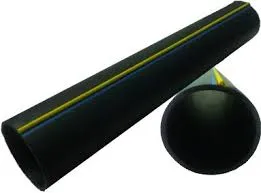Aug . 10, 2024 00:10 Back to list
High-Density Polyethylene Tubes for Versatile Industrial Applications and Sustainable Solutions in Modern Design
The Versatility and Benefits of HDPE Tubes
High-Density Polyethylene (HDPE) tubes have become increasingly popular in a variety of industries due to their unique properties and versatile applications. These tubes, made from thermoplastic polymer, exhibit excellent chemical resistance, durability, and flexibility, making them an ideal choice for many uses. In this article, we will explore the characteristics, advantages, and diverse applications of HDPE tubes.
Characteristics of HDPE Tubes
One of the standout features of HDPE is its high tensile strength, which allows it to withstand substantial pressure without deforming or breaking. This strength makes HDPE tubes suitable for applications where durability is paramount. Additionally, HDPE is resistant to moisture and is non-porous, which prevents the absorption of liquids, thereby making it ideal for applications involving water or other fluids.
Another essential characteristic of HDPE is its resistance to a wide range of chemicals. Unlike some materials that may corrode or degrade when in contact with harsh substances, HDPE maintains its integrity and performance in various environments. This chemical resistance extends the lifespan of the product, reducing the need for frequent replacements and maintenance.
Moreover, HDPE tubes are lightweight and flexible, which simplifies handling and installation. Their flexibility allows them to be easily bent and shaped to fit the specific requirements of a project without compromising structural integrity.
Advantages of Using HDPE Tubes
The advantages of HDPE tubes extend beyond their physical characteristics. For instance, they are environmentally friendly since they can be recycled and reused. The recycling process not only minimizes waste but also reduces the consumption of virgin materials, thereby decreasing the environmental footprint.
hdpe tube

Additionally, HDPE tubes are cost-effective. Their durability means that they require less maintenance over time, leading to lower operational costs in the long run. This makes them an appealing choice for businesses looking to optimize their budgets without sacrificing quality.
Another significant benefit is their resistance to UV radiation. HDPE does not degrade under sunlight, allowing for outdoor applications without the risk of deterioration from prolonged exposure. This characteristic is particularly advantageous for projects involving infrastructure or agricultural uses.
Applications of HDPE Tubes
HDPE tubes find applications across various sectors, including agriculture, construction, plumbing, and telecommunications. In agriculture, they are often used for irrigation systems, allowing for efficient water distribution while minimizing the risk of leaks or damage.
In the construction industry, HDPE tubes are commonly used for drainage and sewer systems. Their ability to resist corrosive elements makes them ideal for transporting wastewater and other relevant materials. Furthermore, they are used in the creation of various structures, including portable restrooms and storage tanks.
In the plumbing sector, HDPE tubes are favored for water supply lines due to their ease of installation and ability to handle high-pressure situations. Similarly, in telecommunications, they are employed as conduits for fiber optic cables, protecting these sensitive materials from external elements.
Conclusion
In summary, HDPE tubes are a remarkable solution for numerous applications due to their strength, flexibility, chemical resistance, and environmental sustainability. As industries continue to evolve and seek innovative materials that are both efficient and eco-friendly, the use of HDPE tubes is likely to expand further. Their versatility makes them an essential component in modern infrastructure, contributing to the advancement of various sectors while promoting sustainable practices. Whether for agricultural, industrial, or commercial applications, HDPE tubes offer an impressive blend of performance, durability, and environmental responsibility, making them a top choice for many professionals.
-
PVC Grey Sheet for Extraction: Chemical Resistant & Durable
NewsAug.19,2025
-
Durable PVC Pipe Fittings for Plumbing & Irrigation Needs
NewsAug.18,2025
-
HDPE Steel Belt Reinforced Spiral Corrugated Pipe | High Strength
NewsAug.17,2025
-
HDPE Pipe Fittings: Durable, Leak-Proof Solutions
NewsAug.16,2025
-
Premium CPVC Sheet: High-Temp & Chemical Resistant Solutions
NewsAug.15,2025
-
Durable PPR Pipe for Hot & Cold Water Systems - Easy Install
NewsAug.14,2025

